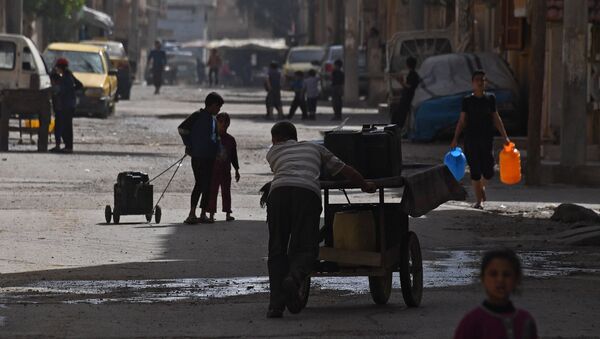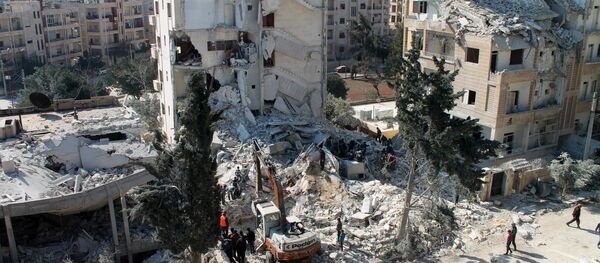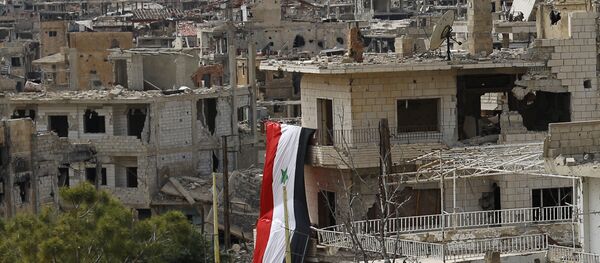Flanagan’s remarks, reflecting a Western refusal to support reconstruction efforts in Syria until there is a political transition, followed the latest round of Astana talks last week where Russia, Iran and Turkey finally agreed on all four safe zones in Syria.
This recent progress could lead to a full cease-fire in Syria and ensure its return to peaceful life.
"You can’t solve all problems at once. Progress towards peace is a good start and I hope the tripartite efforts by Russia, Turkey and Iran will eventually be a success. However, I worry about the success of the Muslim Brotherhood, which is supported by Iran and Turkey. If it winds up a successor to the regime of Bashar Assad, or participates in the government in a meaningful way, this could be dangerous for the Middle East,” Michael Flanagan warned.
When asked what further measures should be taken to achieve a peace deal, he said he hoped that the de-escalation areas would grow.
“The population of these areas has grown in the past months as people keep pouring in. I still believe that six months is not enough and that we need a permanent cease-fire.”
“It will certainly be wiped out, but in respect to the original crisis, that is the revolt against Bashar Assad by the Syrian people, it is still there. Daesh just filled the gap behind this crisis and I think the tripartite efforts are aimed at resolving this particular crisis,” Michael Flanagan continued.
He added that he still fears that replacing the Assad government with the Muslim Brotherhood would be a bad thing for Syria, which could be plunged into a new civil war.
“I believe that this scenario is being resisted. As for the future of Syria, I think that even though many are fairly satisfied with the Assad government, Assad himself probably has to go. Keeping the present government in place without Assad and without the Muslim Brotherhood being in charge would be the most hopeful and best future for Syria,” Michael Flanagan concluded.
The United States, Britain and other anti-Assad countries will not support reconstruction efforts in the war-torn country until there’s a political transition, UK Foreign Minister Boris Johnson said on Monday.
The remarks follow the latest round of Astana talks that took place in the Kazakh capital last week. During the negotiations, Russia, Iran and Turkey, which act as guarantor-states of the Syrian cease-fire regime, finally agreed on the safe zones in Syria, including the establishment of a de-escalation area in Idlib.




